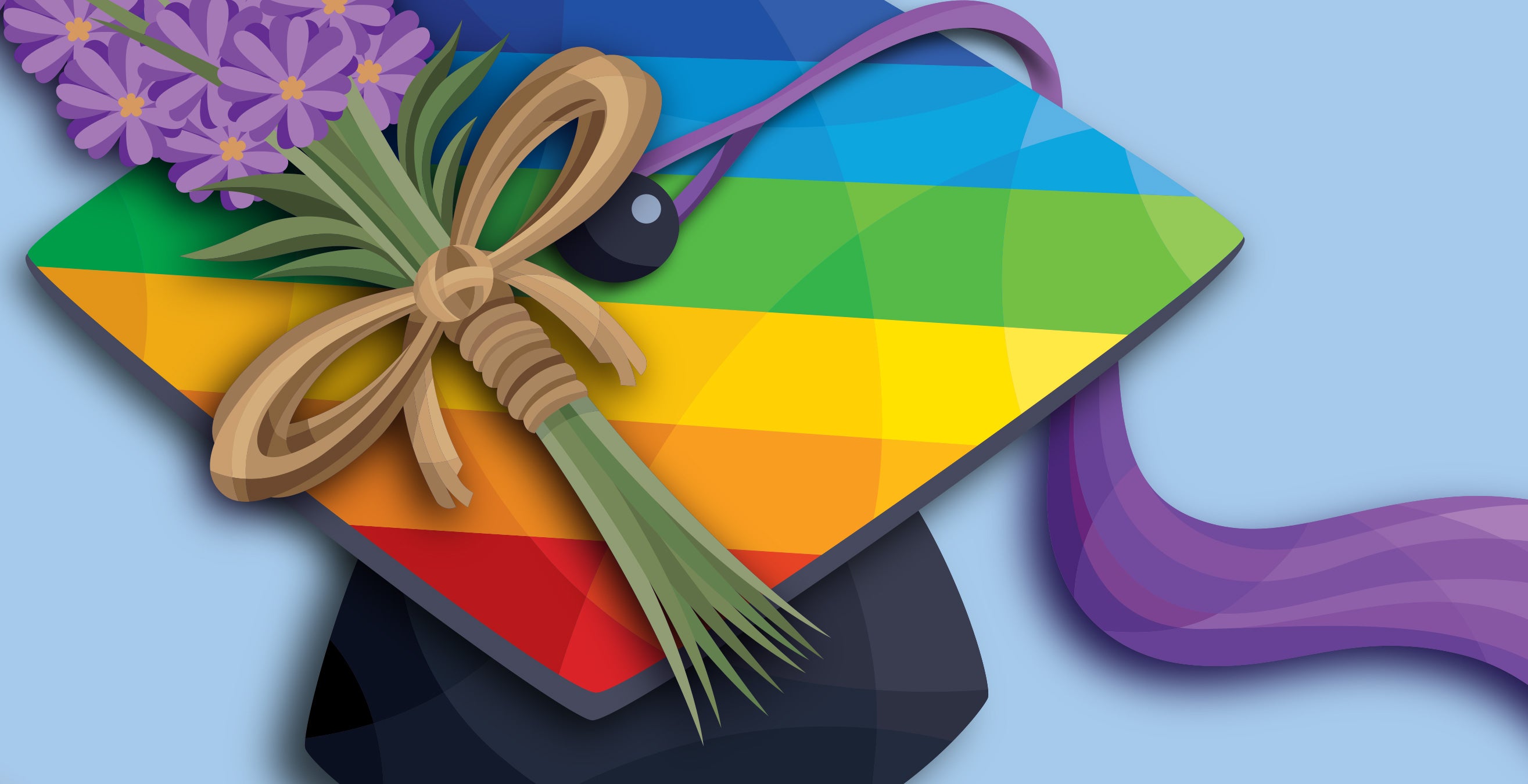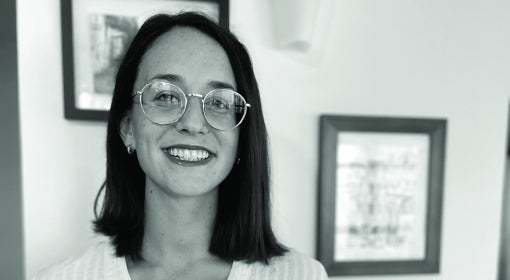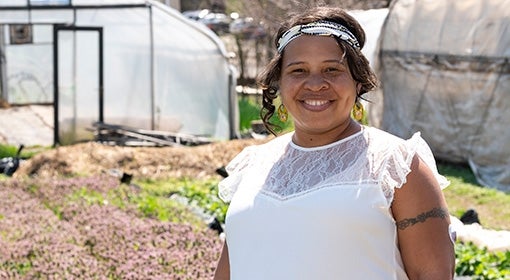
Hannah Moore takes a moment to adjust her mortarboard and then struts through the doors of the William Pitt Union. Graduation has been a long time coming, but it’s finally here. When she enters the ballroom, she’s handed a rainbow pin that she attaches to her lapel. She’s joined by friends and loved ones wearing rainbow pins, too, in support for those, like Moore, who identify as lesbian, gay, bisexual or transgender.
She’s ready to commemorate her academic accomplishments—and her journey of self-discovery.
This is the annual celebration of the achievements of undergraduate, graduate and professional students in the LGBTQIA+ community across all of Pitt’s campuses. Called a Lavender Graduation and typically held a few days before commencement, it’s a tradition that’s been held at colleges around the country since the mid-1990s. The University of Pittsburgh first participated in 2016.
Pitt’s Lavender Graduation was once hosted only by the Rainbow Alliance, an undergraduate organization that provides a safe space for LGBTQIA+ students and their allies. In recent years, its reach has grown, and it’s now also hosted by Pitt Queer Professionals; the Office for Equity Diversity, and Inclusion; and the Office of Health Sciences Diversity, Equity and Inclusion.
For Michael Campbell, former chair of Pitt Queer Professionals and assistant manager for Pitt’s Center for Creativity, the celebration offers support and visibility, which he says are vital to cultivating a culture of acceptance on campus.
“A lot of the time, we discover that LGBTQIA+ students on campus have never even met, and so it’s just a great way to acknowledge this community and its members who are graduating and to bring awareness to how they are contributing to the University and society,” Campbell says.
Moore, a molecular biology major, had never even heard of a Lavender Graduation a few years ago. Now, the celebration is part of the path to acceptance that the native of Severna Park, Maryland, began before she came to Pitt.
She acknowledged her identity in high school—both to herself and to her mom—but she initially struggled to publicly share all of herself when arriving on campus.
“I was vulnerable,” Moore says. “There is so much stigma, internalized homophobia and fear of rejection that there can be a lot of stress with sharing.”
In her sophomore year, she started to feel more comfortable being open with her identity as a member of the LGBTQIA+ community. At the beginning of that year, Moore joined the service fraternity Alpha Phi Omega. With the group, she volunteered with Shepherd Wellness Community, an outreach organization supporting people living with HIV/AIDS who need medicine, meals and other assistance.
She also began to work with “OUTrageous Bingo,” a weekly fundraising event that supports Shepherd Wellness. The broad diversity of the openly gay community there provided her with a sense of belonging.
“It was a place I could be myself,” she says, “and not feel like a stranger.”
The work gave her confidence, as her college career unfolded, “to come out of the closet” to others, including family members who would eventually become accepting.
Now, in her last days at Pitt, standing in the William Pitt Union surrounded by friends, supporters and purple balloons, Moore feels nothing but pride and belonging.
“Seeing all of the faculty and staff there was a great experience,” Moore says. “It shows that Pitt puts so much into making students feel comfortable.”
But the most poignant part of the event, she says, was being able to share her authentic self—especially around her family, who waved rainbow flags and cheered the loudest when her name was read aloud.
“It was a happy day,” says Moore, “and just a recognition of how far we’ve all come.”
This story is from Pitt Magazine's Fall 2022 issue. It was published on October 5, 2022.




